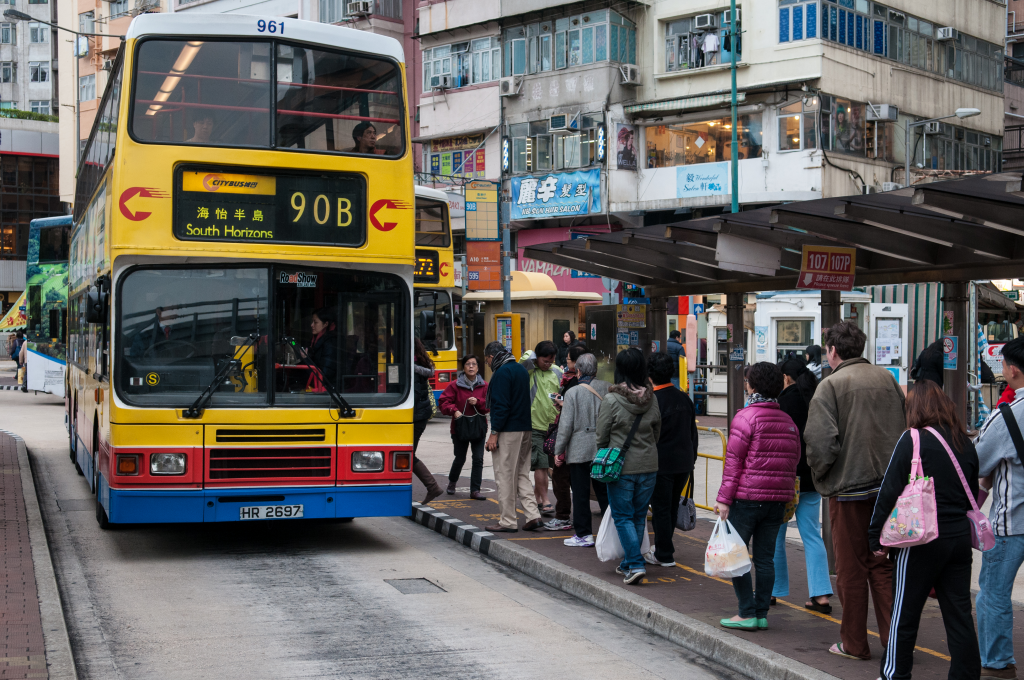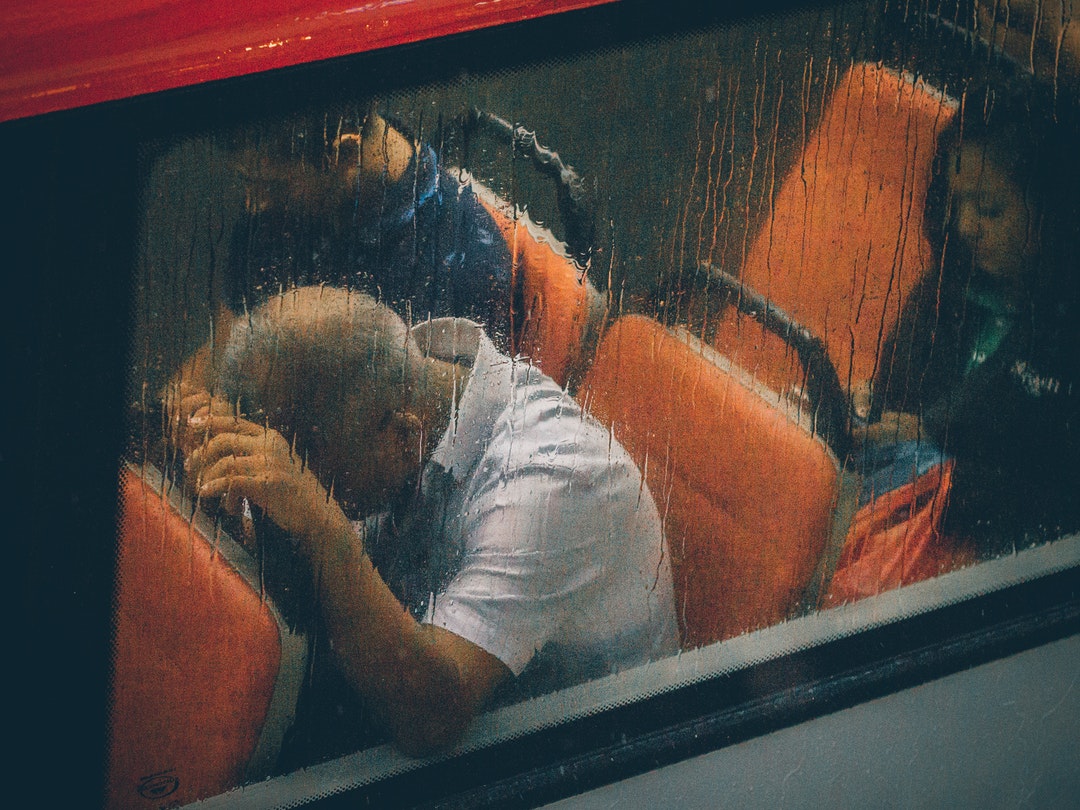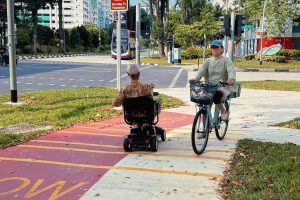There are only two types of people in the world: those who will run for the bus and those who won’t.
For the sake of brevity, I shall call them ‘Runners’ and ‘Walkers’. The definition of a ‘Runner’ is NOT ‘person-who-always-runs’ (because such people are a myth), but someone who is willing to run. The latter category should be self-explanatory: a Walker refuses to give chase no matter how late she/he’s running or how short the distance—”I will take the next one, thankyouverymuch”.
A brief survey reveals a world split 50/50 between the two camps. At RICE headquarters, we are a house divided against itself. Grace and Rachel will run for the bus “if I’m late or something” while Julian, Ben and Mark will not. J refuses to do so because it indicates a “kiasu mentality” while Mark declines because running makes him “stressed out”.
No consensus emerges amongst my friends and family either. Friend K rarely runs because he doesn’t want to look bad, while A is a passionate Runner who has sprinted with a cello upon his back. My parents are both runners, but my longtime Friend Z has not chased a bus since our JC days together, approximately eight long years ago.
“Bus timings are shorter nowadays and there are overlapping routes. Why bother when the next one is just five minutes away?” he explains over the phone, voice rich with bemusement.
His answer puts us at odds because I’m a veritable Forrest Gump when it comes to catching public transport. On any given day, I can be found mid-sprint with flailing arms and a backpack bouncing against me butt. I’ve risked life and limb to dash across traffic junctions and I’ve even pursued an empty double-decker from one bus stop to the next, before sitting down to savour the triumph of man over machine.
The interesting question is, why?
God divided the earth between sky and water, but why did Mankind divide itself into Runners and Walkers?

The simplest answer to this question is pride.
Public transport is not cool. Hence, running frantically after public transport with an audience of dour-faced commuters is even less cool. Even if you make it, the judgment of your fellow passengers awaits as you make the walk of shame towards your seat, clothes askew and basted in sweat.
If not, you are left standing at the bus stop like an idiot, panting and cursing like some comic-relief manga character who has failed at this most trivial of missions.
This is the issue that almost everyone raises when we talk about Running v. Walking. Our image is front and central in the age of Instagram, and absolutely nobody wants to look stupid. People who would otherwise run for the bus restrain their instincts if they are a) dressed to the nines or b) on a hot date.
In the mental arithmetic of bus-chasing, image looms large for most would-be runners, trumping other concerns like lateness or the pain of fossilising at a bus stop for 10 fruitless minutes.
In fact, some runners admit that they judge other runners for running, despite being guilty of the same crime.

So, are Walkers just image-conscious Runners? I don’t think so. Most Runners support this theory, but walkers tend to disagree. They present a different set of explanations for their behaviour:
A: “Running shows a kiasu mentality. I don’t want to be kiasu.”
B: “Running makes me flustered and stressed out. I would rather be late than run.”
C: “When you run for the bus, you surrender control to the powers that be.”
When you distill these statements, what remains is ego. An ego that proclaims: “I didn’t plan to run, therefore I refuse to.”
For the die-hard Walker, this refusal is not about image. It is a battle of self against system. He refuses to run because his ego would not let bus schedules trample over his dignity. He refuses because running is surrendering to the uncontrollable forces of morning traffic, and therefore treasonous to his exalted sense of self.
From his ego’s point of view, buses exist to serve him, not vice versa. Running for the bus is akin to letting the tail wag the dog.
This might sound mean, selfish and egoistic, but it’s hardly a moral failing. Egotism exists to some degree in every man, woman and child. When you refuse to give up your seat on the train to an uncle of borderline seniority, it’s your ego saying: “I’m tired, I deserve this, he’s gonna be fine.”
Likewise for squeezing yourself onto a crowded MRT carriage, snapping your fingers impatiently at the bar, or blasting your music in a shared space.
If some people choose to express their ego by walking, that’s perfectly alright by me.

However, this ego-hypothesis is not without its flaws. When I presented my findings to the Royal Society Of People Who Do Not Run For The Bus, I was greeted with violent protestations of innocence.
“No lah, where got? I just wait for the next one.” they cried in unison.
The next one? The NEXT ONE.
And then I got it. I found an answer to cut this Gordian knot of pop psychology: Runners live in the moment, whilst Walkers do not. What separates them is not self-image or ego, but a clash of reason v. passion.
Every walker is a rational being. They do not run because this bus is not meant for them. This bus is merely one of many; the first in a series of identical buses all going in the same direction, all arriving in approximately in five to 10 minutes.
Why bother if there’s no rush?
Runners do not see it this way. For us, the bus in front is the only one that matters. Once we have glimpsed its impending arrival, it is no longer simply a bus but MY bus. There might be an infinite number of buses waiting just around the corner, but I’ve already fallen in love. Fortune has brought us together like Jack and Rose on the Titanic and I’ll be damned if I let SBS No. SLR234982Z slip away into the Atlantic’s icy depths.
This is why Runners chase the bus in hot weather, and even when they’re not late for work. It’s not a rational decision but a crime of passion, founded upon the belief that every bus is a destiny waiting to be fulfilled.
In other words, Runners are hopeless romantics. They glimpse fate in every small thing and are thus scoffed at by Walkers, whose cool rationalism forbids such magical thinking.

If I may take a guess, our Prime Minister would not run for the bus, but perhaps Ho Ching would. Elon Musk is a definite Runner, while his team of long-suffering engineers traipse behind. I’m 120 per cent certain that Minister Shanmugam has never chased a bus in his entire life, while only 70 per cent sure that Thum Ping Tjin is a Walker.
As for Sumiko Tan, nobody knows. But my bet is on ‘Runner’ for any one who marries late in life.
Whatever the case, I firmly believe that our newly-patented RICE-PJ Public Transportation Personality Evaluation Process (RPJPTPEP) is the new Myers-Briggs because it is both simpler and more accurate. How we act speaks volumes about who we are. Why fill in an odious self-evaluation form when the truth is out there, waiting for you like an impatient PRC bus captain?
So the next time you find yourself typing out a new Tinder bio, ditch the horoscopes and the MBTIs.
Instead, tell the world why you walk or run, and let public transport transport you to true love.
Runner or walker, everyone’s a writer. Write to us at community@ricemedia.co.






